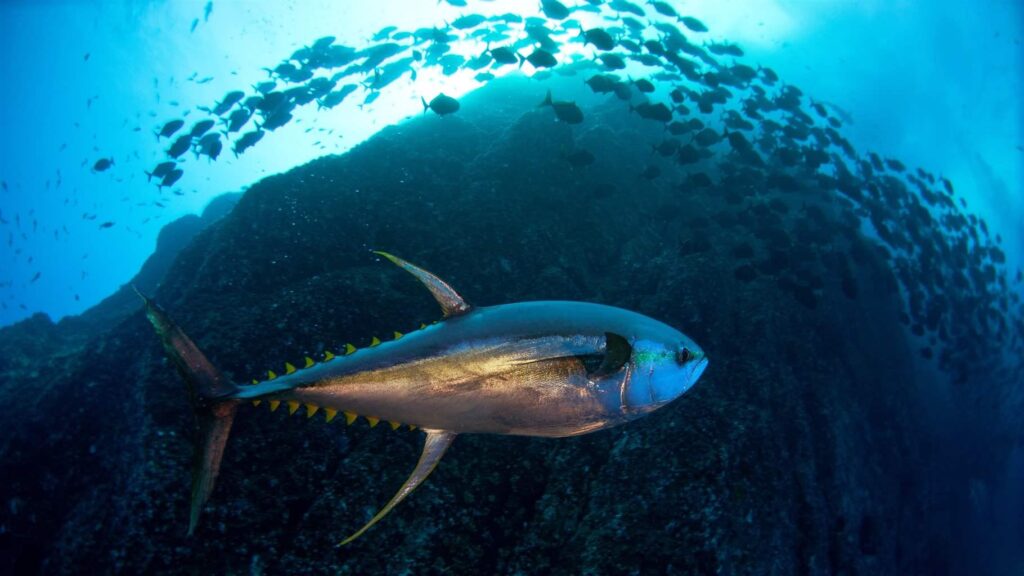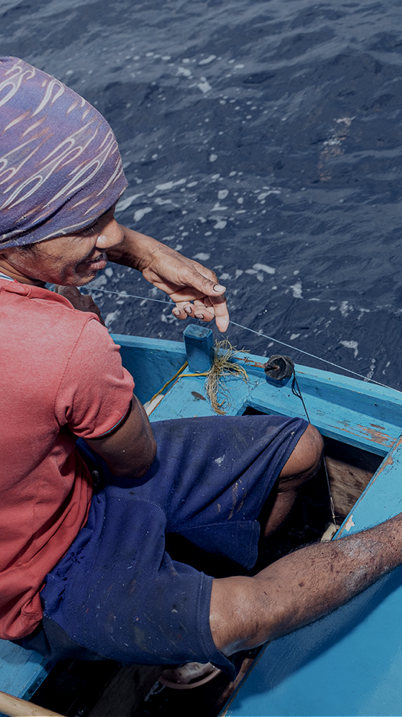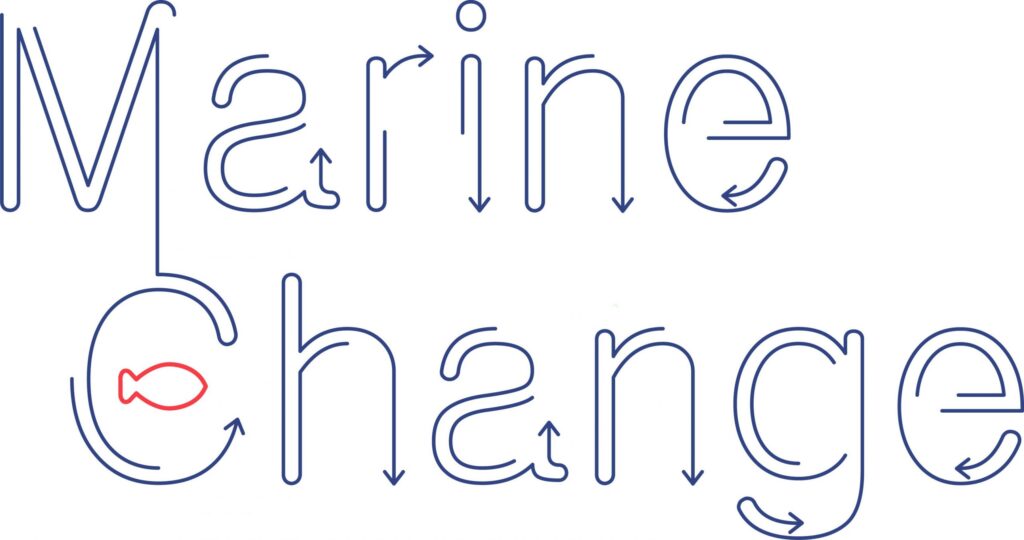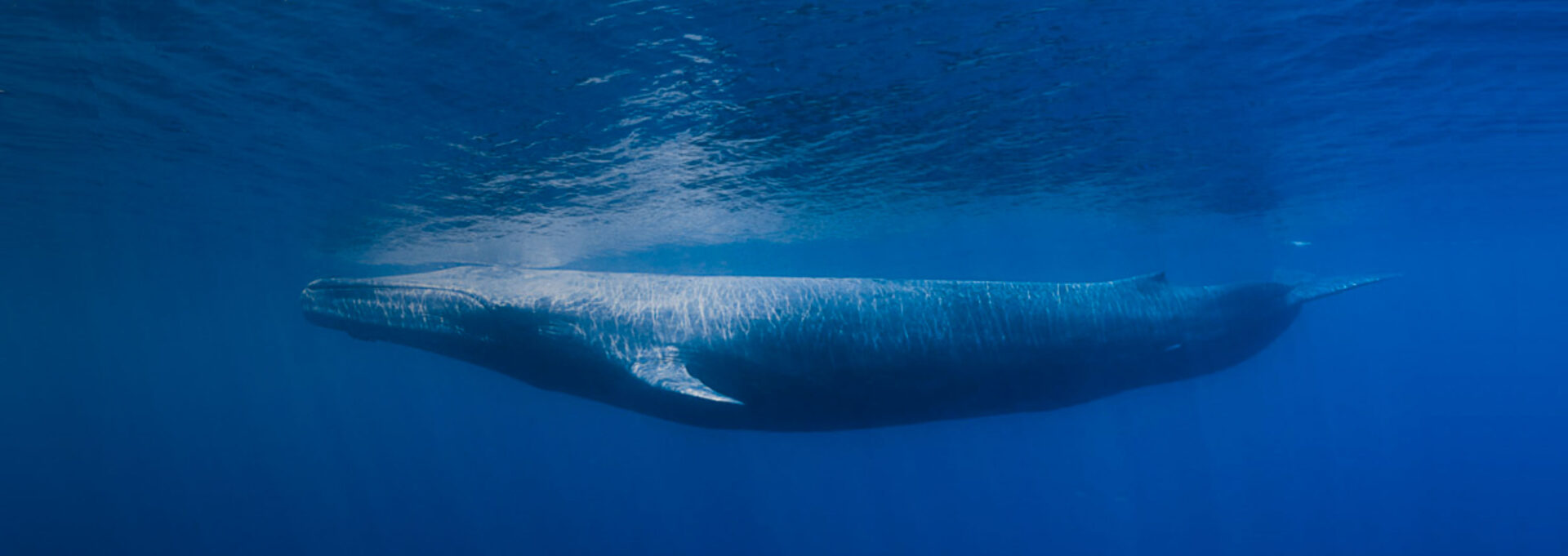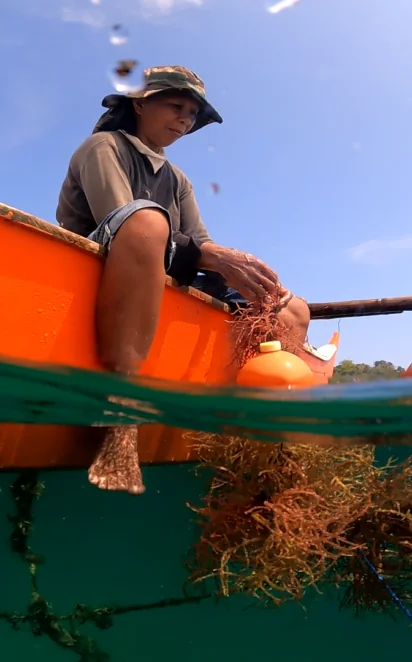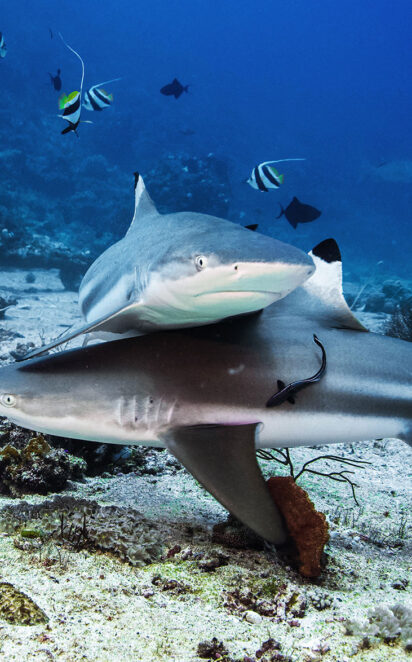Developing Parametric Climate Risk Insurance for Small-Scale Tuna Fishers
Project Lead: Marine Change
Supporting Partner: WTW
Support: Received mentoring and training from first cycle of the Ocean Resilience Innovation Challenge (ORIC), which was financially supported by the Government of Canada. Direct financial support provided by the UK’s Blue Planet Fund and the Swiss Re Foundation
Location: Indonesia
Financial Innovation: Parametric Insurance
Summary
ORRAA is working with Marine Change to enhance the resilience of communities in Indonesia relying on tuna fishing by supporting the development of parametric climate risk insurance. The solution aims to provide a safety net for small-scale fishers who increasingly suffer from less predictable fishing seasons and the impacts of climate change. ORRAA supports Marine Change through the first round of the Ocean Resilience Innovation Challenge (ORIC).
Challenge
Artisanal fishers in Indonesia often live in remote areas with few economic opportunities and typically have little, if any, access to the formal financial sector. While informal community and supply chain lending is common and limited government insurance schemes are in place, fishers and their families lack adequate protection against economic shocks. Even fishers that catch yellowfin tuna, a valuable commodity processed at local hubs and sold internationally, are vulnerable.
Fishers targeting yellowfin tuna use vessels that are mostly under 10 gross tons, five meters in length and have just a handful of crew. High winds and waves can make it very dangerous or impossible for these small-scale vessels to reach their fishing grounds. Moreover, climate change is disrupting weather patterns, with less predictable monsoon seasons and increasing storm severity. This adversely affects incomes and disrupts seafood supply chains. To build resilience, a better safety net is needed to protect small-scale fishers and their families from the impacts of climate change.
Solution
Marine Change is looking to introduce a parametric insurance product that will provide payments to coastal fishers when extraordinary weather events prevent them from safely going to sea. Parametric insurance has been extensively implemented in agriculture, paying out when, for example, there is insufficient or excess rainfall which negatively impact crop yields. However, its application to capture fisheries is recent.
Marine Change is responsible for overall product design and delivery of project deliverables, while WTW, a multinational insurance broker, advises on technical aspects and the prospective product’s marketability, and counsel on lessons learned from parametric insurance cover already in the market. Meanwhile, an Indonesian Marine Stewardship Council (MSC)-certified sustainable tuna processor and exporter has agreed to test the insurance product in its supply chains that include over 2,700 fishers across three Indonesian provinces.
Scalability and Next Steps
Marine Change will work with relevant government actors and supply chains to determine the market opportunity and interest of prospective policyholders. Utilising their extensive experience working the insurance market, WTW will support this process to ensure optimal design, acceptance, and reduce the cost. Finally, as fishers are generally unaware of the availability of insurance products, the project will conduct extensive socialisation to raise awareness levels and secure buy-in.
Work is now underway to conduct a feasibility study in Indonesia, with the ultimate objective to build a concept that is applicable to any small-scale fishery across the world. Demonstrating a robust business case for a company or fishers’ group to offer such a product to fishers and ensuring that the costs of such policies are minimised will be an important aspect of this work. This will include an emphasis on replicability and using pre-existing payment mechanisms to implement this solution without the need for any additional infrastructure.
